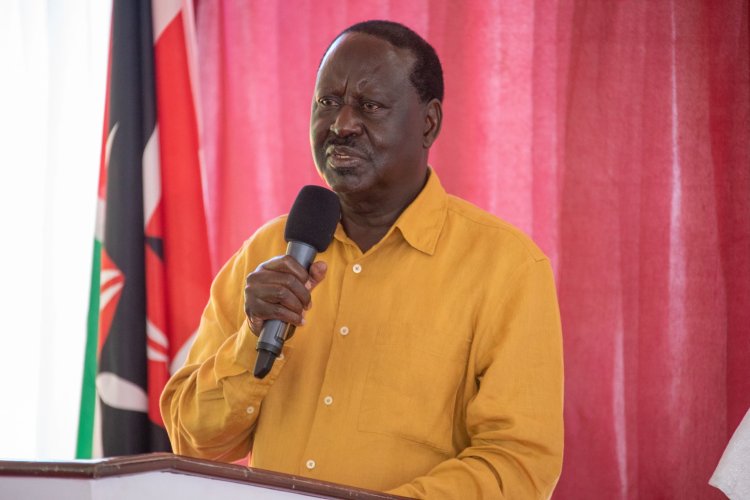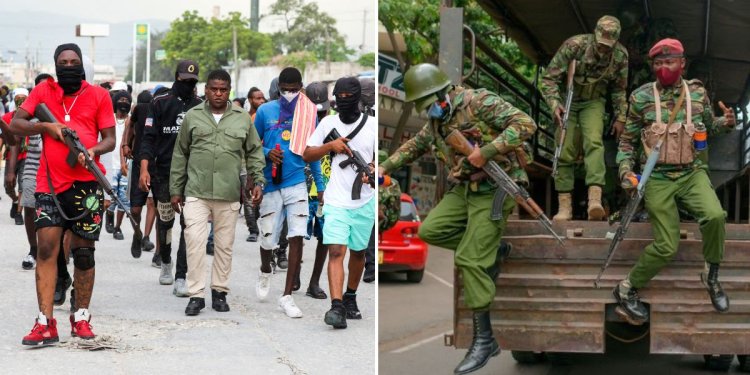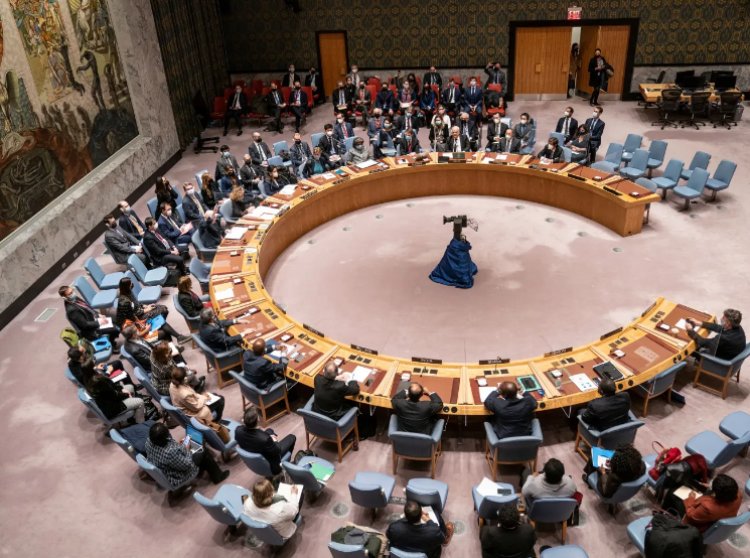Hurdle Kenya Faces Before Mission To Haiti- Raila
The debate over the matter is likely to be heated given that Raila joined scores of Kenyans expressing their reservations over the move.

Former Prime Minister, Raila Odinga, has asserted that the intended deployment of Kenyan security forces to Haiti should be subjected to approval by Parliament.
Speaking to the press on Thursday, October 5, the Azimio la Umoja opposition leader noted that the decision by Kenya to send 1,000 of its police to the Caribbean nation, which has been controlled by gangs, should be first subjected to debate and approval by Parliament.
To back his sentiments, Raila referred to a time when he was Prime Minister whereby he and the Cabinet had approved the deployment of Kenya Defence Forces (KDF) to Somalia in 2011 to fight Al Shabaab militants before he took a motion on the matter to the National Assembly.
He noted that this is a similar scenario Kenya faces with the intended deployment of police to Haiti, adding that it must be subjected to Parliamentary approval before the deployment by January 2024.

A photo collage of the Haiti gang and the Kenya General Service Unit. /REUTERS.THE CONVERSATION
"Generally, deployment of forces outside the borders requires Parliamentary approval. As you know when I was the Prime Minister and we decided with the Cabinet to send our forces to Somalia, I took a motion to Parliament. It was debated and approved by Parliament.
"This is a similar case...we are sending our troops outside our borders. It must be approved by Parliament just like the Defence Treaty signed between the government and the government of the United States (US) must also be taken to Parliament and approved," he stated.
The debate over the matter is likely to be heated given that Raila joined scores of Kenyans expressing their reservations over the move.
The former premier questioned why Kenya has to lead the mission to the gang-controlled Caribbean nation, particularly when the United Nations (UN) Security Council had numerous African states and neighbouring nations of the war-stricken country to choose from.
"I don't think it is the right move. The question we should ask is why Kenya? What is so unique about Kenya that the country can be identified out of 54 African countries?" Raila posed during a KTN News interview.
"Before you even come to Africa, Haiti is at the doorstep of the United States which is the most powerful nation in the world. There are also several other Caribbean islands around Haiti like Jamaica, the Bahamas and the Dominican Republic. What is it that is so unique about Kenya that it is being chosen to lead the multinational force in Haiti?"
Human rights activists and security stakeholders also condemned what they termed as a controversial decision, given that Kenyan police would be walking into geographical, language and cultural barriers, among other challenges and whose preparedness has also been questioned.
Despite Kenya expressing its readiness to lead a UN-backed mission to Haiti, at home, it faces growing pressure to justify the risky intervention and the wisdom of sending its police to the violence-ravaged nation.
Questions also arose on whether the Kenyan police can go toe-to-toe and successfully subdue the Haitian gangs that have dominated the nation since the assassination of President Jovenel Moïse in July 2021.
The recent gang-related violence in Haiti forced over 3,000 officers to leave the police service in the past two years, with the officers fearing for their lives. Out of this, an estimated 15,498 officers remain on duty, according to a statement released by Francisco Occil, Haiti's police spokesperson, in February 2023.
"Are our Police, most of whom speak neither French nor Creole and will find themselves in strange terrain, sufficiently prepared for this high-risk mission or Ruto is ready to sacrifice innocent Kenya blood for American dollars and international recognition?" posed the Opposition during their presser.
They added: "Ruto must stabilize and secure Kenya before thinking of sending our security people to what is clearly a Mission Impossible in a country we even had no diplomatic ties until about two weeks ago."
Azimio also maintained that Kenya is under-policed and hence cannot afford to give up officers to export. According to the coalition, the recommended UN police-to-citizens ratio is 1 police officer for every 400 people, but in Kenya, the police-to-people ratio stands at one officer for over 1,000 people.
The United Nations Security Council on Monday approved a Kenyan-led security operation in the Caribbean nation, where the economy has collapsed and violent gangs control territory seized from a weak government.
The country's beleaguered leaders appealed for a year for international help to restore order, but the memory of other failed interventions in Haiti kept volunteers at bay.


 admin
admin 




